Parabens
KoR Skin Care was created after Charlotte saw what toxic and harmful ingredients are being used in everyday products you find on the shelves in your local stores.
One group of ingredients to look out for in products are parabens.
There is mixed information available on parabens, so we are going to cover some aspects in this blog post.
What are parabens?
Parabens are chemicals that are used in skincare formulations to extend shelf life by preserving ingredients to prevent bacteria and fungi from growing. Parabens in cosmetics are usually around 0.3% to 1% of the total formulations. They are one of the most studied ingredients in cosmetics.
Parabens used to be the main form of preservatives, however natural preservatives are now being used more and more in skincare products.
Where do they come from?
Parabens are extracted from a chemical called para-hydroxybenzoic acid (PHBA).
PHBA is naturally occurring in many fruits - cherries, blueberries, and vegetables - carrots and onions. PHBA also is naturally formed in the human body by the breakdown of some amino acids.
Parabens used in cosmetics are identical to those found in nature, and the human body quickly changes them into natural PHBA and eliminates them.
What to look out for on the label?
Methylparaben, Butylparaben, Ethylparaben, Propylparaben, Isobutylparaben, Isopropylparaben, other ingredient which ends in –paraben.
Artificial perfumes and fragrances can also contain hidden parabens, however it is not a legal requirement for them to be listed on the label, they are usually listed as 'fragrance*'.
Even if you can’t see the word ‘paraben’, this doesn't mean the product is paraben-free. Often, they’ll just use the abbreviations for the parabens listed above to the label, using words such as ‘ethyl’, ‘butyl’, ‘methy’ and ‘propyl’.
Be aware and check your labels!

Are they really that bad for us?
Manmade parabens are regularly being studied. One British study found 19 out of 20 women had parabens in their breast tissue. This has caused concern as it showed that the parabens in self-care products do not just get absorbed into the skin, but they can be integrated and remain into our bodily tissues. From such studies and data, there is speculation that parabens could potentially lead to cancer formation. More information on this later on.
Website 'The Facts About' write - 'Cosmetic products are only allowed to contain preservatives which are specifically included on a list within the UK and EU Cosmetics Regulations. Adding ingredients to these lists is a very complicated and rigorous process; numerous safety tests on all different aspects from skin irritation to genotoxicity and reproductive toxicity, all in the context of how that ingredient is going to be used in cosmetic products in real-life, need to be submitted to the EU Commission's independent expert scientific panel for review before the preservative can be approved as safe for use.' https://www.thefactsabout.co.uk/parabens
The Science –
We are constantly researching and educating ourselves on all things skincare. An addition to the information in 'The Facts About', we recently read a study conducted on 60 breast tissue samples collected in England between 2005 and 2008, we were really interested, and slightly shocked, to read the below information from the study.
All below information is from a study conducted in scientific institutes throughout England by L. Barr,aG. Et al.
'There is also some evidence that parabens can mimic the effect of oestrogen, which has again in turn been linked to cancer formations and infertility. Parabens can also commonly cause skin sensitivities and allergies. The skin sensitivities and allergies occur by repeated exposure of parabens to the skin, and then the immune cells in the skin slowly but significantly mounting an immune response to when parabens subsequently come into contact with the skin.'
‘The source of the paraben cannot be identified, but paraben was measured in the 7/40 patients who reported never having used underarm cosmetics in their lifetime.'
‘Since then, other studies have confirmed that parabens can indeed be absorbed systemically in humans as intact esters from topical application of parabens in cosmetic creams (Janjua et al., 200, 2008), with paraben esters measurable in blood after as little as 1 h after dermal application (Janjua et al., 2007). Later, a Norwegian study reported that paraben esters can be measured in over 60% of blood samples taken from the general population and that there was a significant association between blood paraben concentration and self-reported use of personal care products ‘
'Parabens are believed to cause harm to marine life, where they've been found inside sea creatures and are also believed to damage and kill coral.'
Summary
The research on parabens is obviously very eye opening however, don't panic.
It's important to note that the percentage of parabens in cosmetic formulations are usually low concentrations, but the constant use will build up over time, so we recommend using paraben free products whenever you can.
Being a conscious and clean skincare brand, we do not and will never use parabens in any of our formulations. We use natural preservatives, such as rosemary extract, to prolong the shelf life of our products. We also have waterless formulations to prevent the growth of microbes, yeast and bacteria in our products.
We want you to remember that everything in life is about balance and moderation, even skincare, so it may be difficult for you to completely eliminate all products containing parabens on your shelf.
Please do check the ingredients list on what you are using, and keep an eye out for any of the parabens mentioned in this blog post.
The purpose of this blog post is to raise awareness and to educate.

